The 2023 ICABR Conference has begun: the meeting co-organized by the Government of Argentina and IICA brings together the world’s top bioeconomy specialists to discuss pathways to sustainable development
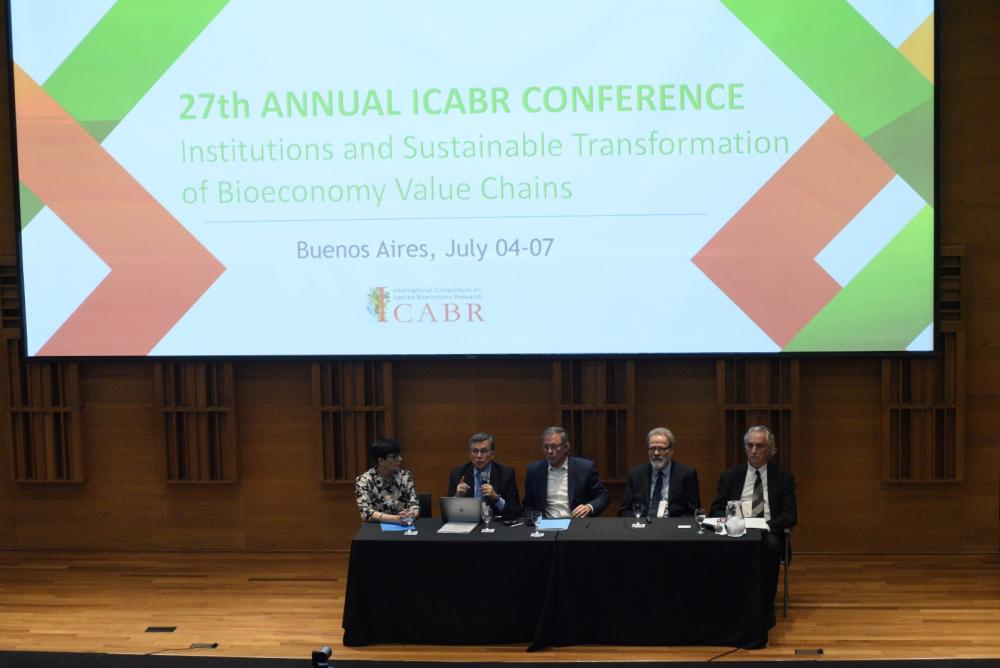
Buenos Aires, 5 June 2023 (IICA). More than 150 researchers and scientists from across the world, who are specialists in the bioeconomy, began a historic international academic meeting in Buenos Aires, where they will discuss key issues for the future sustainable development of the Americas.
This 27th Annual Conference of the International Consortium on Applied Bioeconomy Research (ICABR) is co-organized by the Secretariat of Agriculture Livestock and Fisheries (SAGyP) and Ministry of Science, Technology and Innovation (MinCyT) of Argentina, ICABR and the Inter-American Institute for Cooperation on Agriculture (IICA).
The four-day event is taking place in the auditorium and meeting rooms of the MinCyT. Participants at the opening included Juan José Bahillo and Daniel Filmus, Argentina’s Secretary of Agriculture and Minister of Science, Technology and Productive Innovation, respectively, along with Justus Wesseler, President of ICABR, and IICA Director General, Manuel Otero.
The first keynote address, on the status of the bioeconomy across the world and opportunities for the region, was delivered by Eduardo Trigo, an international expert in the area, who is also an advisor to IICA’s Innovation and Bioeconomy Program.
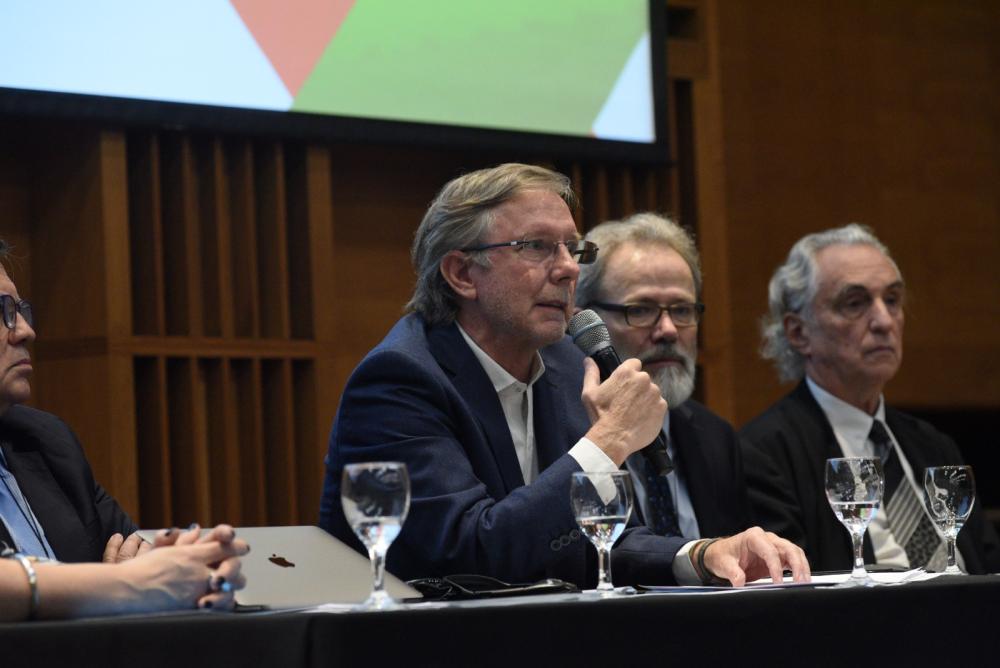
On the other hand, Bahillo remarked that, “The bioeconomy has a strategic role to play in Argentina and the region. It is a new paradigm that we must use to resolve the immense challenge of producing more with less impact on the environment”.
The Secretary highlighted IICA’s role in promoting international cooperation and emphasized that today the world is demanding not only more food, but better production processes. He stressed that, “We cannot only set productivity targets, but must also consider three aspects of sustainability: the economic, social and environmental. As such, we must intensify scientific discussions and that is the purpose of this conference”.
Filmus joined the opening via video, as he is currently attending a meeting of G20 ministers in India, where he said the bioeconomy is one of the most prominent issues. He commented that, “There are many interests at play and different perspectives on the bioeconomy. However, the developing countries are making a huge effort, because we understand that this is an unavoidable path. The fact that we are hosting this meeting in Buenos Aires is momentous”.
The Minister of Science, Technology and Productive Innovation viewed IICA’s cooperation agenda as critical to the programs of his ministry.
Justus Wesseler felt that the issue of institutions will be key to paving the path for greater bioeconomy development in Latin America and the Caribbean, as well as the rest of the world.
Wesseler, an academic from the University of Wageningen in the Netherlands and a specialist in biotechnology and the contribution of value chains to sustainability, argued that, “We must organize and create the conditions for the sustainable transformation of production processes and thus we must identify both strengths and weaknesses”.
Manuel Otero applauded the initiative of the Argentine Government in organizing the historic conference for the first time in Latin America and the Caribbean, demonstrating its commitment to the transition towards greater sustainability of production and consumption processes.
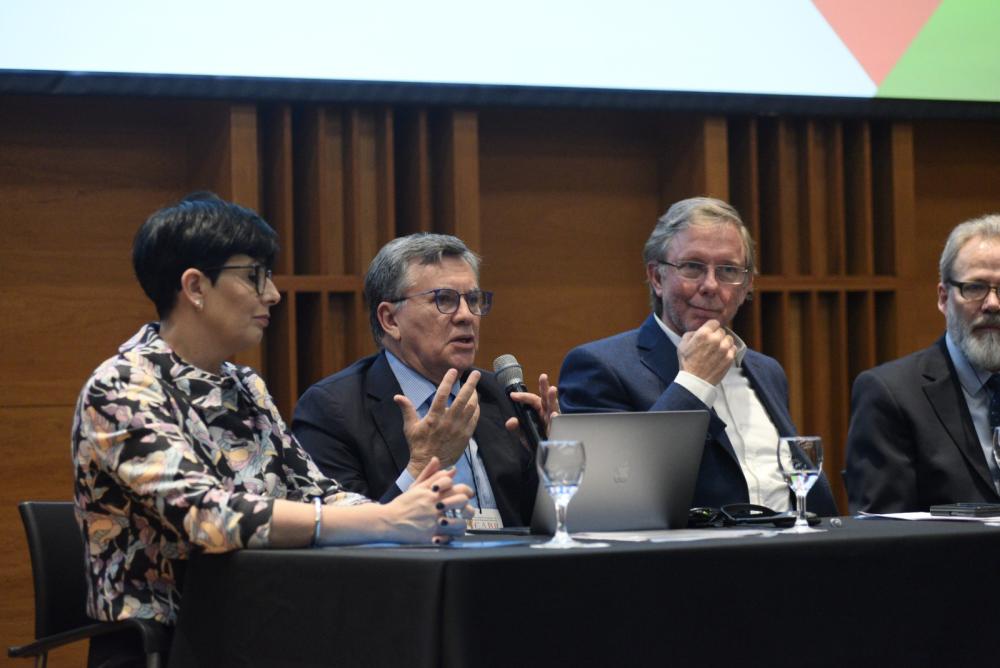
He maintained that, “If Latin America and the Caribbean wants to be at the forefront of the global bioeconomy it must actively participate in international forums, where we must showcase our reality. I am convinced that this region is the guarantor of the world’s food and environmental security. We may not be doing everything right, but we are a relevant player, and this trend will no doubt increase because we have the natural resources, the human resources and the technology to be leaders”.
Traditional and modern
“The presentation by Eduardo Trigo, which was entitled, “Towards a Research Agenda to Build the Bioeconomy as an Approach to Sustainable Development”, was followed with keen interest by the academics of the Americas, Europe and Africa, who filled the MinCyT auditorium.
Trigo, who has extensive experience as an academic and also in national and international technical organizations, pointed out that, in reality, the bioeconomy has been a part of human existence since the outset.
“The bioeconomy has been with us since the beginning of time, regardless of how we define it. It has been present in all societies, in different ways, depending on the era. We have always used knowledge to harness biological elements”, he explained.
“With agriculture, fermentation and biofuels, we were engaging in the bioeconomy, without knowing it. Therefore, the bioeconomy is very traditional but also something very modern. At the end of the last century, biotechnology emerged as an innovation forum that allowed us to begin to transform biological processes for a defined purpose and to begin to integrate them into economic cycles in a more efficient way”.
The expert expressed his view that we are now in a third phase, in which the bioeconomy offers an approach to development, saying that, “Today it has become an alternative to fossil economics, amidst the challenges of climate change. We are very far from meeting the SDGs and the bioeconomy has emerged as an answer in this time of crisis”.
.
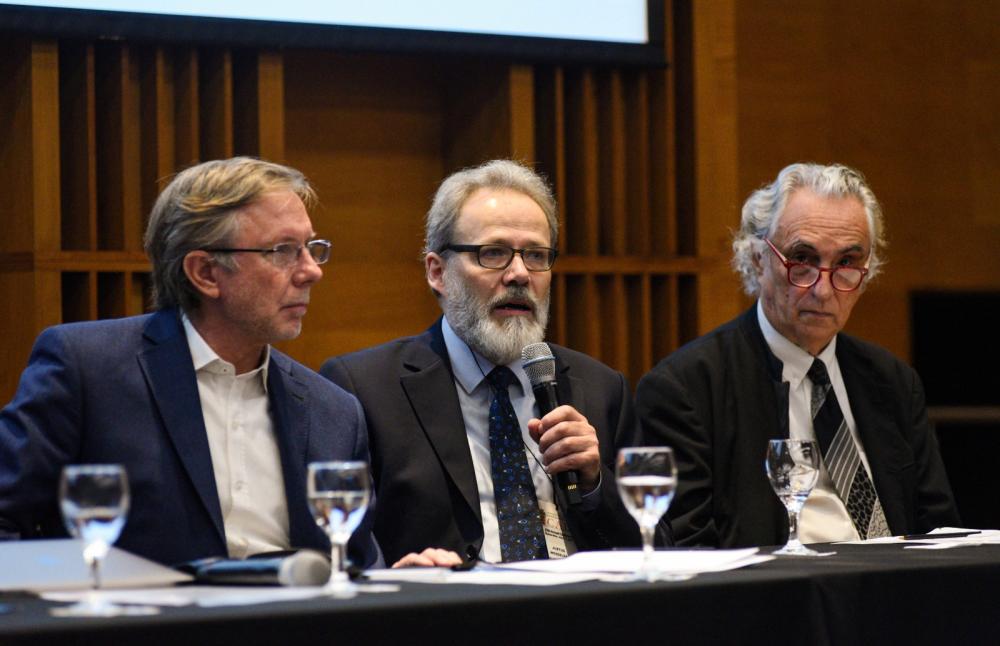
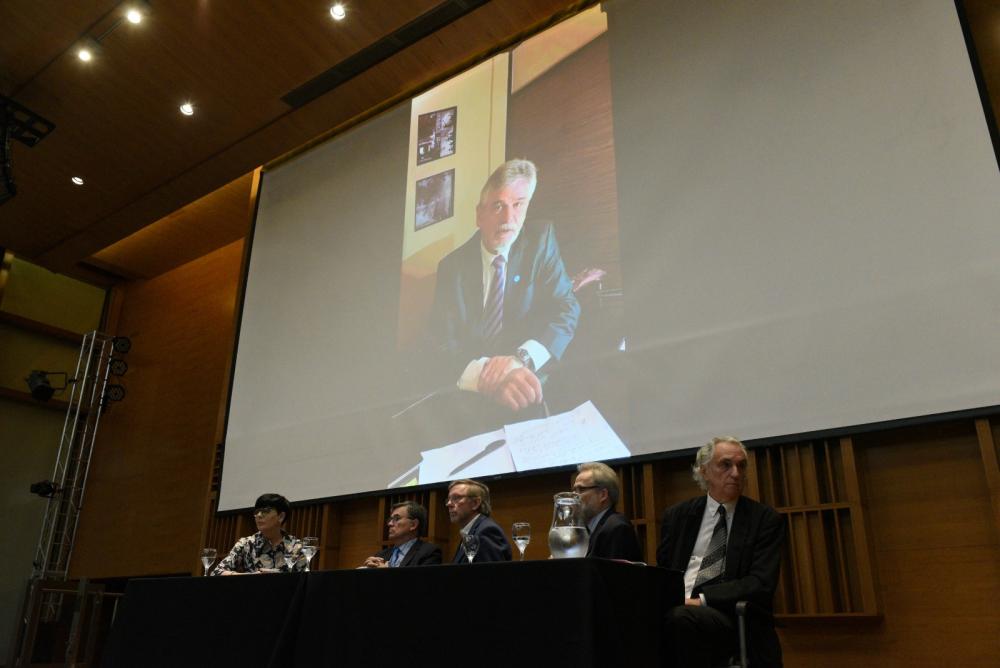
Finally, Trigo spoke about what remains to be done for Latin America and the Caribbean to better exploit this opportunity. “We have—he said—eight of the 15 most megabiodiverse countries in the world and the fact that diversity is a strategic resource is no longer disputed by anyone. We must embark on pathways to take advantage of this, for example by creating markets of ecosystem services”.
He also pointed out that another critical issue is the integration of family farming, saying that, “Latin America and the Caribbean has 21 million agricultural production units, two thirds of which are family operations. This is too high of a number for the bioeconomy to progress with creating an effective proposal on how to integrate this sector”.
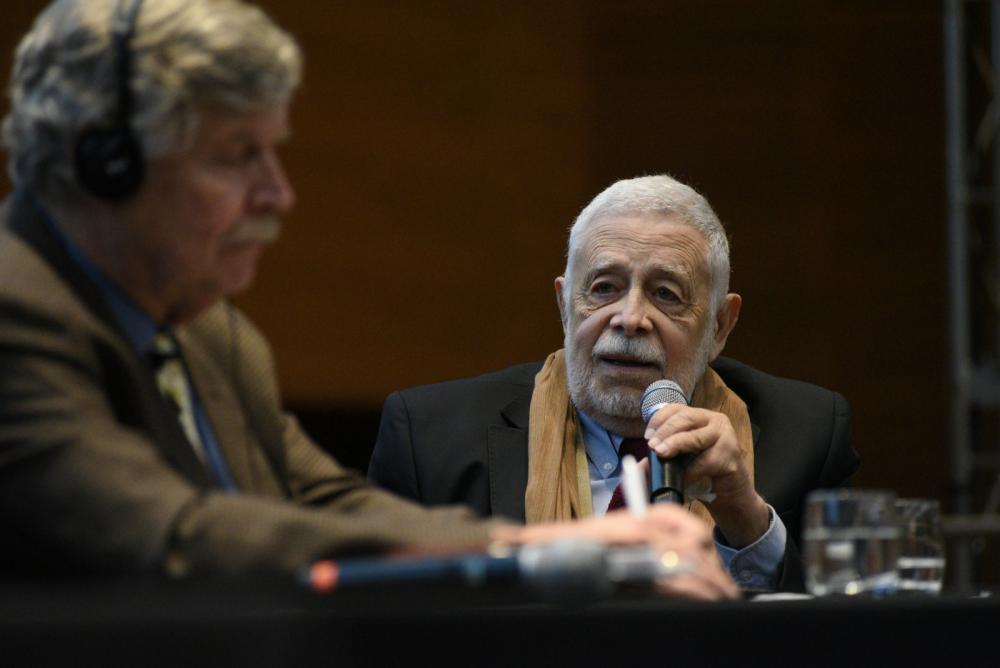
More information:
Institutional Communication Division.
comunicacion.institucional@iica.int